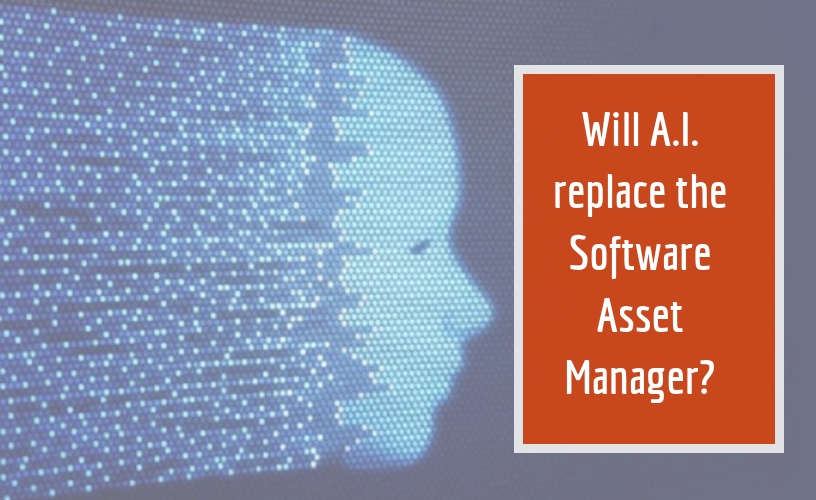
Will AI replace the SAM?
There is a great deal of interest and enthusiasm for Artificial Intelligence (A.I.) at present. Pundits proclaim a new dawn of faster and more accurate learning and problem solving as we get machines to do the “thinking” for us. What will be the implications of A.I. for software asset management and is the SAM manager of today likely to be replaced by a machine in the next few years?
We are used to computers processing data and presenting information for managers to make the decisions but are we really ready to allow computers to make decisions? In theory they should be better at making decisions than humans because they are faster, more accurate and capable of processing far more data. Why not leave IT and software licensing to them to analyse and make procurement decisions?
We can segment A.I. and associated decision making into two groups:
- Specialized: this is when there is a specific and focussed series of tasks that can be repeated on a regular basis. Subscription payments are a typical example where inventory and usage data can be analysed and then subscription orders placed on a monthly basis. By using key decision making rules, the computer can make efficient procurement decisions faster and more reliably than a human manager. An example of this could be SPLA reporting where monthly subscription reports can be optimized for both compliance and cost efficiency.
- Generalized: this is when there are different tasks and random variables affecting the decisions. Often in a negotiation there are variations of opinions and aspirations of the two parties. This means that data is used to bring the two sides closer together but still compromises have to be reached. A.I. finds this type of situation more challenging to address unless both parties have agreed on the risk and mitigation factors that can be applied to reach a satisfactory decision. An example of this can be in a support agreement negotiation for perpetual software licenses where incomplete or conflicting data is being used. Such situations are problematic for A.I.
In the future will the SAM or IT procurement professional decide when and where to use A.I. or be replaced by it? The answer probably depends on the individual. Those that can embrace the opportunity of A.I. and the freedom it gives from number crunching and data inaccuracies, will be able to focus their efforts on strategic planning, R.O.I. benchmarking and improved procurement processes. However those individual who prefer to sit in the corner with their spreadsheets and compliance assessments will struggle to define their role in the organization of the future. As Charles Darwin said “It is not the strongest of the species that survive, nor the most intelligent, but the one most responsive to change”.
1 Comment
Jos Creese · March 28, 2018 at 7:32 am
We are on an interesting but long journey here, especially for public services
Comments are closed.